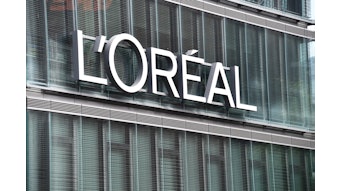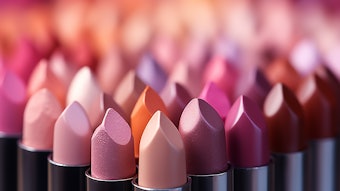After the acquisition of 51% of the Brazilian franchise network Emporio Body Store (reported by GCI in October 2013), L’Oréal-owned The Body Shop has set a goal to open 500 new stores throughout the country in the next five years. The deal, which gives L’Oréal the option to increase its stake in Emporio to 80% by 2019, is part of L’Oréal’s strategy to broaden its footprint in the Brazilian retail market.
According to Helio Seibel, co-owner of Emporio Body Store, the company’s intention is not to simply import The Body Shop’s business model. “The synergy of the two companies allows us to combine forces,” he says. “Brazil is perfectly able to innovate and propose new ways of doing business.” Some of The Body Shop’s top-selling products have been available in stores since January 2014. “There will be a gradual transition to the new brand, including the refit of existing stores,” Seibel notes.
In addition to imported products, The Body Shop will sell new products manufactured locally and developed at L’Oréal’s Research Center in Rio, which will open in 2015. Emporio Body Store, which finished 2013 with 130 stores, also has its own plant in the city of Porto Alegre. And Emporio Body Store’s Tobias Chanan will remain CEO, with the aim of expanding the business through the franchise channel.
P&G Delves Into Brazilian Women’s Summer Beauty Routine
Brazil may be one of the most body-conscious societies in the world. However, research by P&G and Ilumeo revealed many Brazilian women confront self-esteem issues during the bikini season, with 62% of respondents saying they don’t feel confident with their appearance during the warmer months.
“The research confirms not only the importance that Brazilian women place on their appearance to others but how they see themselves in the mirror,” says Gabriela Onofre, communication and marketing director, P&G Brasil.
On their list of summer priorities, having beautiful legs comes first (33%), followed by healthy hair (24%), cellulite-free bottoms (17%) and toned abs (14%). More than half of respondents (54%) feel a greater need to shave and wax during the summer, with 79% stating that they remove hair from their underarms at least once a week. Sixty percent have the same routine for their legs and 58% for the groin area.
When it comes to hair, 38% of respondents devote an extra 30 minutes to an hour per week to their hair care routine during the summer; 26% said they wash their hair every day, and another 26% use hair masks and treatments more than once a week, while only 15% use a hair dryer every time they wash their hair.
The top three items Brazilian women said they can’t live without during the summer are deodorants (71%), hair care products (63%) and sunscreen (63%).
Unilever to Open Three New Plants by End of 2016
Unilever announced the purchase of a 40-acre area in Aguai, São Paulo for the construction of its 13th industrial complex in Brazil, which is expected to be in operation in 2015 and to create 1,000 new jobs there. Two more plants also are planned for 2016.
With a goal of doubling its global revenues by 2020, Unilever also is investing in logistics. A 90,000-square-meter distribution center was built in Pouso Alegre in the state of Minas Gerais in November 2013, and the R$200 million site has the capacity to double in size in the coming years. The site will stock beauty, personal care and cleaning products manufactured in two Unilever plants located in the São Paulo and Goiania states.
Natura Receives R$205 Million for Innovation
The only Brazilian company ranked among the world’s top 10 most innovative companies by Forbes, Natura has received a R$205 million fund from FINEP (the Brazilian Innovation Agency) for the development of new ingredients and technologies in 2014 and 2015. The amount is a record for the beauty company.
The project includes research on new ingredients from Brazil’s biodiversity, bio-agriculture initiatives, consumer safety technologies, alternative testing methods and open innovation programs, which are intended to bring the company closer to universities and research institutes.
“In the last two years, our innovation rate was 67.2%, and funding provided by FINEP will help us to keep up with the pace,” says Gerson Pinto, vice president of innovation, Natura. From January to September 2013, Natura invested R$125.9 million (2.6% of its net revenue) in R&D.
Abril Acquires Online Beauty Retailer Meu Espelho
One of the largest media conglomerates in Latin America, Abril, has taken a step forward in its strategy to expand its digital business division with the acquisition of online beauty retailer Meu Espelho (‘My Mirror’). It is Abril’s first acquisition in the e-commerce space, and the company will rely on the strength of its women’s magazines to boost the sales of fragrances and beauty products.
Meu Espelho has a product portfolio that includes luxury brands Clinique, L’Occitane and Lancôme, and Abril’s goal is to double the number of items currently available on the website.
Founders Bianca Latgé and Renata Merquior will continue to run the company. “The vast experience of the website’s founding team along with Abril’s diverse readership provide us with great expectations in this promising market,” says Martin Scott Greenblat, digital business director, Abril.
Delays in Product Registration Affect the Industry
Preliminary data by ABIHPEC (the Brazilian Association of Cosmetics) shows the smallest growth rate in the past 17 years. According to the organization, the industry’s performance was hampered by product registration delays by the regulatory body ANVISA.
“In 2013, we had a five-month delay in the approval of new products,” says João Carlos Basilio, president, ABIHPEC. Industry losses are estimated at R$1 billion, having affected more than 2,000 products. Reportedly, approximately 300 tenders will be called by ANVISA in early 2014, which should expedite the process.
Fernanda Bonifacio is a Brazilian journalist who focuses on the beauty industry, and has been published in the U.S. and Europe. She represented ABIHPEC and its member companies globally from 2002–2008. She has also been a communications consultant for raw material manufacturer Beraca since 2009.










